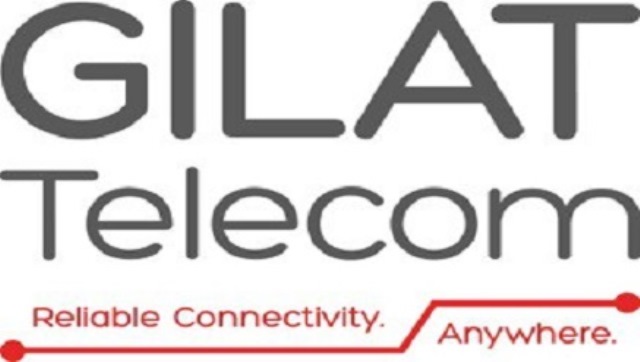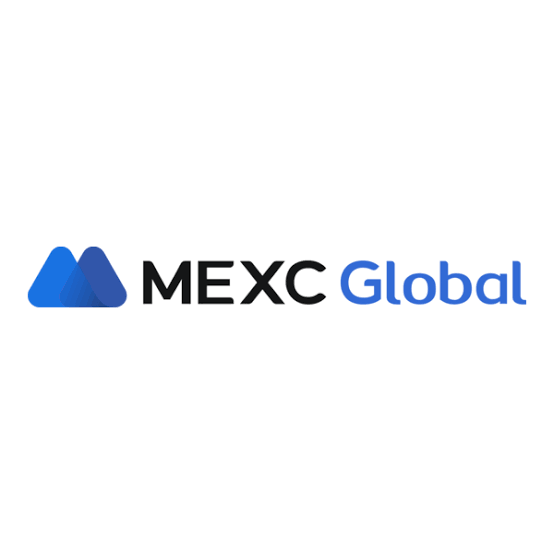Telecom
Gilat Telecom Expands VSAT Services Across Africa

Satellite and fibre-based connectivity solutions provider Gilat Telecom has confirmed its VSAT services are now available in every country in Africa, amid an increasing demand for broadband connectivity across the continent.

The company has been in operation for 20 years, with a strong base in East Africa. It continues to witness a surge in VSAT adoption, primarily within businesses serving MNOs with cellular backhaul (CBH), financial institutions connecting multiple branches to their headquarters, as well as operators in hospitality and military, and ISPs.
The company says there is a growing need for VSAT services within MNOs with CBH and businesses in the maritime industry, specifically.
As to what is driving demand, executives from Gilat Telecom say rural areas have had little in the way of other connectivity options and generally satellite reliability is much higher than that of fibre, which allows businesses to keep operating without losing customers.
“Backup services and BoD (Bandwidth on Demand) is crucial as well, and many MNOs, financial institutions and ISPs that use VSAT combined with a fibre to ensure a high quality of service,” the company adds.
Gilat Telecom asserts that on many occasions VSAT is less expensive than laying fibre or operating a microwave deployment, both CAPEX and OPEX, without mentioning the multiple sites which require pan-Africa communication, and this may replace a fibre MPLS network.
It says, “For a global bank for example, with twenty or more branches in different cities across hundreds of kilometres, deploying a microwave network is almost impossible.”
The fibre versus satellite connectivity debate is one the company is quite used to. With so much fibre being laid across the continent, will VSAT still have a role to play in ten years’ time?
The company explains: “This has been said since 2005, and indeed many new fibres have been laid, however the VSAT market has increased, mostly because the internet usage trend changes. Today, the single end user is consuming more than five times bandwidth compared to last five years. It’s an application evolution with bandwidth and speed key.”
With this in mind, Gilat Telecom has invested in its VSAT offering and developed a new self-control portal, designed specifically for the African market.
According to the company, this gives organisations complete control over their networks and full visibility of all their services, including billing, OSS and BSS visible on the same dashboard.
IPTEC has been using Gilat Telecom’s VSAT service to provide connectivity to NGOS, ISPs and enterprises across South Sudan.
CEO Kamrul Hasan Sagar said: “We are using various VSAT technologies as a managed service, VNO and more. “
Davor Folkenfolk, Head of Engineering at Gilat Telecom, added: “We use an extensive number of satellite providers which means we can pick the best service for our customers.
“We can then help them to maximise their bandwidth so that connectivity isn’t something they have to worry about anymore. Our new VSAT capabilities have been driven by demand and developed with our long-term customers.”
Telecom
Crypto Exchange MEXC Rolls Out P2P Support for Naira, Birr, and Rupee

In a strategic move to deepen its presence in emerging economies, global cryptocurrency exchange MEXC has launched peer-to-peer (P2P) trading support for three new fiat currencies — the Nigerian Naira (NGN), Ethiopian Birr (ETB), and Pakistani Rupee (PKR). This expansion reflects the company’s increasing focus on localising crypto access in high-growth, underbanked regions.

The addition of NGN, ETB, and PKR to MEXC’s P2P platform enables users in Nigeria, Ethiopia, and Pakistan to trade major cryptocurrencies including Bitcoin (BTC), Ethereum (ETH), Tether (USDT), and USD Coin (USDC) directly with their local currencies.
The trades come with zero transaction fees, in line with MEXC’s strategy to lower entry barriers for users and encourage grassroots participation in the digital asset economy.
The update is more than a technical expansion — it underscores MEXC’s recognition of Africa and South Asia as rising crypto frontiers. Nigeria, often cited as one of the world’s fastest-growing crypto markets, and Ethiopia, where digital finance is beginning to surge amid reforms, represent key territories for crypto adoption. Similarly, Pakistan’s growing youth population and fintech appetite offer strong potential for crypto-enabled financial inclusion.
To support the rollout, MEXC is actively onboarding new merchants to its P2P platform. Merchants benefit from zero transaction fees, dedicated customer support, a special verification badge, and invitations to exclusive community events. The goal is to nurture a local network of verified sellers and buyers who can facilitate seamless and trusted crypto trades.
P2P trading — which allows users to transact directly without third-party intermediaries — is especially relevant in markets where banking infrastructure is either insufficient or heavily regulated. By bypassing traditional systems, P2P provides a lifeline for users seeking stablecoins, alternative stores of value, or more flexible remittance solutions.
This latest expansion signals MEXC’s intent to compete aggressively for market share in underserved territories while enabling more users to access and benefit from Web3 technologies. As global exchanges race to localise their services, MEXC’s early moves into fiat integration may prove pivotal in shaping the next wave of crypto adoption across the Global South.
Telecom
MTN Nigeria Unveils CPaaS Platform to Transform Business Communication

At the recently concluded NextNow Business Forum in Victoria Island, MTN Nigeria electrified the business community with a live demonstration of its forthcoming Communication Platform as a Service (CPaaS), a solution engineered to redefine how Nigerian enterprises connect with their customers.

Unlike traditional communication systems, MTN’s CPaaS is built for the realities of a mobile-first market. The platform unifies SMS, voice, WhatsApp, email, and more into a single, intuitive interface. This approach is especially significant in Nigeria, with over 107 million internet users, 45.4% of the total population, according to Data Report. This figure underscores the necessity for businesses to meet customers where they are.
During the demo, attendees witnessed how CPaaS enables two-way, real-time conversations between brands and customers. The platform’s support for rich media, instant analytics, and seamless integration with business workflows drew particular attention. These features are designed to empower businesses with data-driven insights and the agility to personalise every interaction, whether it’s a service notification, marketing campaign, or customer support exchange.
Akinbulejo Onabolu, Head of Enterprise Segment at MTN Nigeria, articulated the vision: “CPaaS gives enterprises the flexibility to interact with their customers on their preferred platforms; whether it’s chat, voice, or messaging, in a way that feels personal and immediate. We’re looking forward to the value this will unlock for businesses across industries once it launches.”
The fireside chat added depth to the conversation, with Omowunmi Olatunbosun, Head of SME Segment at MTN Nigeria, and Stephen Agbi of Bayobab, highlighting how digital engagement bridges the gap between businesses and audiences.
They emphasised that today’s consumers demand immediacy, relevance, and ease, qualities that CPaaS is built to deliver.
The stakes for digital transformation in Nigeria are high. In a report by Punch, the country’s enterprise tech market is projected to reach $22 billion by 2027, reflecting a surge in demand for scalable, cloud-based solutions that drive efficiency and customer loyalty.
The CPAAS Acceleration Alliance have estimated that globally, the CPaaS market is expected to grow from $14.7 billion in 2025 to $72.4 billion by 2035, at a compound annual growth rate of 18.4%, a testament to the platform’s transformative potential.
The event’s closing keynote from META’s Korhan Yunak reinforced the strategic value of digital channels like WhatsApp, which are now indispensable for business communication and engagement at scale.
As MTN Nigeria prepares for the Q3 2025 launch, the anticipation is unmistakable. With its promise of flexibility, intelligence, and seamless integration, MTN’s CPaaS platform is set to become the backbone of next-generation business-customer engagement in Nigeria, enabling enterprises to not just communicate but to connect, adapt, and grow in a digital-first era.
Telecom
MTN Mulls Establishment of Fintech Firm in Nigeria, Others

MTN Uganda is seeking input from stakeholders on a plan to structurally separate its mobile money service, MoMo, from its core telecoms business.

According to the company, the proposed change will be discussed at the upcoming extraordinary general meeting on July 2.
If approved, the telco’s fintech business will be run by a new company controlled by MTN Group Fintech Holdings B.V. and a trust benefiting minority shareholders following a merger.
Additionally, the restructuring also aligns with MTN Group’s ambition 2025 strategy which aims to unlock value, attract new investors, and strengthen regulatory compliance by creating standalone fintech entities in Uganda, Ghana, and Nigeria.
The company’s fintech division has over 13 million customers, with an 18.4% revenue increase in the first quarter of 2025, driven by 19.0% growth in mobile money services, 19.8% growth in transaction volumes, and a 31.4% increase in transaction value.
Reports say the decision is part of the telco’s compliance with the National Payment Systems Act 2020, which mandates mobile money businesses to operate as standalone entities, and to align with MTN Group’s regional fintech strategy.
MTN Uganda, which is led by CEO Sylvia Mulinge, highlighted that the implementation of the proposed transaction will be subjected to a number of conditions and regulatory procedures.
“The implementation of the proposed transaction shall be subject to a number of conditions, including the company and MTN MoMo receiving all required regulatory approvals and no-objections and complying with any regulatory conditions,” said MTN Uganda in notice.

 E-Financial17 hours ago
E-Financial17 hours agoFidelity Bank ED, Kevin Ugwuoke takes over as President of Risk Managers Association

 General News17 hours ago
General News17 hours agoAirtel Concludes Nationwide Environment Week with Market Clean-Up by Employees

 E-Financial3 days ago
E-Financial3 days agoSterling Bank Pledges ₦2bn to Fully Fund University Scholarships

 News17 hours ago
News17 hours agoWhy I am vying for AFRINIC board seat in 2025 election – Terry Edet

 Telecom3 days ago
Telecom3 days agoMTN Nigeria Unveils CPaaS Platform to Transform Business Communication

 News3 days ago
News3 days agoChina Expands Zero-Tariff Trade for Nigeria, 52 Other African Nations

 General News17 hours ago
General News17 hours agoCourt Orders Lawyer to Produce “Bail-Jumping” Client in MTN Cyber Fraud Case

 Telecom17 hours ago
Telecom17 hours agoCrypto Exchange MEXC Rolls Out P2P Support for Naira, Birr, and Rupee

















